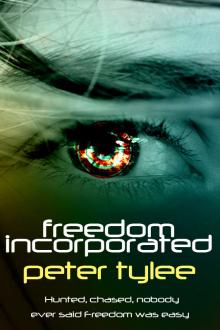Gift : 12 Lessons to Save Your Life by Edith Eger (ebook voice reader .TXT) 📗

- Author: Edith Eger
Book online «Gift : 12 Lessons to Save Your Life by Edith Eger (ebook voice reader .TXT) 📗». Author Edith Eger
When I woke up from the operation hours later, groggy and numb, the nurses told me I was the most elegant patient they’d ever seen coming out of the operating room. Apparently, my makeup was still perfect.
I didn’t feel elegant. I felt like a helpless infant—delirious with medications, unable to make sense of my surroundings, and unable to move without assistance. I had to push a button for someone to take me to the bathroom and then would wait in fear that a nurse or medical assistant wouldn’t arrive in time. I didn’t feel fully human. I felt reduced to a collection of basic needs—hunger, thirst, elimination—and was incapable of meeting them myself.
Worst of all, I was intubated and couldn’t speak. To be helpless and voiceless brought back too many horrible memories. I grabbed at the tube, tried to pull it out. The nurses were worried I’d suffocate myself and tied my hands down. Now I was truly terrified. My automatic physical reactions—PTSD symptoms—brought on by the trauma of my past meant that I couldn’t stand being confined. Tight spaces, anything holding me down sent me into panic. My heart raced dangerously fast, contracting before it could fill with blood. Tied down and mute in the hospital, I felt that to continue living was too steep a feat.
My three beautiful children—Marianne, Audrey, and John—had been by my side since the surgery and tirelessly advocating on my behalf, ensuring my medications were adjusted to keep me as lucid as possible, rubbing my favorite Chanel lotion into my parched skin. My grandchildren visited. Rachel and Audrey brought me a soft robe. They were all taking such good care of me, doing all they could to offer dignity and comfort. But I was hooked up to so many machines. Would I ever be able to function again without them? I didn’t want to be kept breathing if I couldn’t fully live. Once my hands were free, I gestured for Marianne to bring me a piece of paper and a pen. I want to die—happy, I scrawled.
They reassured me that they’d let me go when it was time, and Marianne pocketed my note. They didn’t seem to understand that I was ready to go now. Later that day Dr. McCaul, my lung doctor, came through on his rounds and said I was looking good. He’d take the tube out the next day, he promised. My children smiled and kissed me. “See, Mom,” they said. “You’re going to be fine.” As the long hours of the afternoon ticked by, and all my monitors and support machines beeped and clicked around me, I tried to convince myself. It’s temporary, I told myself. I can survive this. I dozed and woke up more times than I can count, and then passed a restless, endless night staring out the little square window of the hospital room, sleeping and waking again. The sun rose. I’d made it after all. The tube would come out that day.
It’s temporary, I repeated, waiting for Dr. McCaul to come and remove the tube. It’s temporary. But when the doctor arrived, he paused, double-checked his notes, and then sighed. “I think we need to give it another day.”
I wasn’t able to speak to tell him that I didn’t have another day in me. Not understanding how close I was to giving up, he gave me a reassuring smile and went about his rounds.
I woke up deep in the middle of that night. My whole body was curled inward, shutting out the world. I wondered if this was what it felt like to finally let go. Then I heard an inner voice: “You did it in Auschwitz. You can do it again now.” I had a choice. I could give in and give up. Or I could choose hope. A new feeling washed through my body. I felt three generations—my children, grandchildren, and great-grandchildren—gathering to buoy me up. I thought of Marianne jumping for joy when she visited me in the hospital after Audrey was born, shouting, “I got my sister! I got my sister!” John, whose childhood difficulties taught me that no matter what happens, we never give up. Lindsey’s glowing face when she became a mom. My great-grandson Hale’s sweet voice calling me Gi-Gi Baby. David as a toddler lifting up his shirt so I could kiss his belly button, crying, “Do me! Do me!” Jordan as a teenager acting tough with his friends, then asking for warm milk and honey at bedtime. Rachel’s beautiful eyes gazing at me just that morning as she massaged my feet. I had to live, because I never wanted to stop looking into those eyes! I felt the gift of all of them, the gift of life. The pain and fatigue weren’t gone, but my limbs and heart felt alive, thrumming with the call of possibility and purpose, with the realization that I wasn’t done helping others, that there was more here on this planet that I wanted to do.
When it’s our time, it’s our time. We can’t choose when we die. But I no longer wanted to. I wanted to live.
The next day, the doctor came back, the tube came out, and Audrey helped me walk down the hall, pulling





Comments (0)